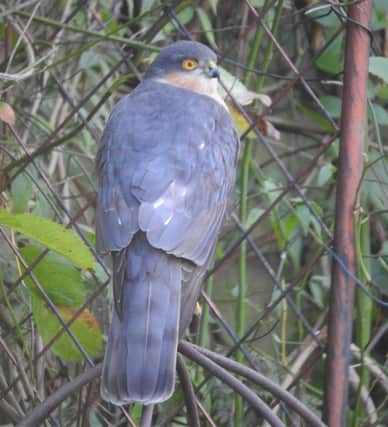For the garden sparrowhawk, lunch is a waiting game


Their feeding strategy is generally surprise with sudden appearance over hedge, fence or a building perhaps, leading to the sad demise of an unfortunate small bird. I know some readers find the predation process somewhat traumatic but nature is not always cute and cuddly.
Part of the bigger picture, predators help keep ecological systems in balance. Moreover, these are generally long-lived and intelligent birds and we find them both spectacular and exciting; and so a close encounter with a predator is a special moment.
Advertisement
Hide AdAdvertisement
Hide AdOne of my local sparrowhawks has developed a much easier way of getting lunch, which is simply to sit and wait. These birds soon get to know their patch and they use that knowledge to help their feeding patterns and to maximise opportunities.
For a predator there is also a critical interplay between the energy recovered from the victim and that expended in order to make a kill. Anyway, this particular bird, and I suspect it is the same individual, made the discovery that there is a safe place to perch in my garden which gives cover and also easy access to a nearby bird feeder.
There, camouflaged from view of the smaller birds visiting the feeder, he simply sits and waits. Being below the top-line of the hedge, the smaller birds don’t see the hawk in waiting.
This is a fatal error for some of the visitors. Motionless, the sparrowhawk waits, and patience is a virtue in the waiting game.
Advertisement
Hide AdAdvertisement
Hide AdMy hawk now knows the game, the place, and the opportunities. However, when he appears the small birds know and the message goes out on the ‘jungle telegraph’. The garden goes quiet and all bird activity stops. There follows a period of stand-off until a small bird forgets the hawk’s presence and arrives to feed, and that point its fate hangs in the balance. If not, the sparrowhawk will decide to move on to pastures new after maybe ten minutes.
Tomorrow is a new day and a new lunch!
Professor Ian D. Rotherham, of Sheffield Hallam University researcher, writer and broadcaster on wildlife and environmental issues